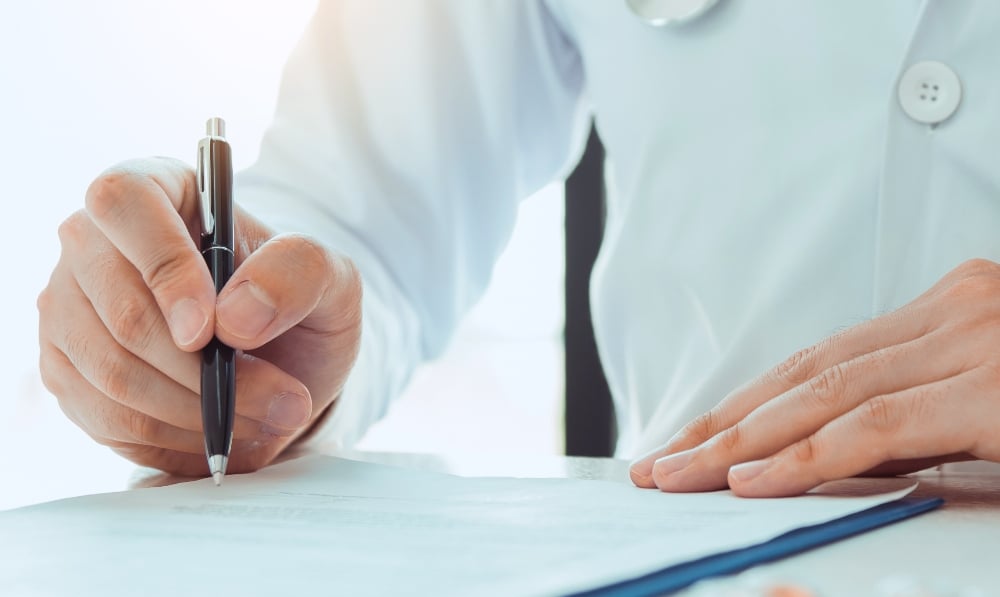Recovery from substance use disorders presents numerous challenges, and for many individuals, anxiety can be a significant obstacle on the path to sobriety. At No Matter What Recovery, we understand that anxiety and addiction often occur together, creating a complex situation that requires comprehensive treatment approaches.
Understanding the Relationship Between Anxiety and Addiction
According to the Substance Abuse and Mental Health Services Administration, approximately 50% of individuals with severe mental disorders are affected by substance abuse, with anxiety disorders being among the most common co-occurring conditions.
The relationship between anxiety and addiction is bidirectional:
- Substance use can temporarily mask anxiety symptoms, creating a harmful cycle of dependence
- Many people use substances specifically to cope with anxiety symptoms
- During recovery, anxiety symptoms can worsen as the brain chemistry adjusts to functioning without substances
- Untreated anxiety significantly increases relapse risk, with some studies showing that individuals with co-occurring anxiety are up to 3 times more likely to relapse
Anxiety in the LGBTQ+ Community: Unique Challenges for Recovery
The LGBTQ+ community experiences anxiety at significantly higher rates than the general population, creating additional complexities during addiction recovery. Research from the National Alliance on Mental Illness indicates that LGBTQ+ adults are more than twice as likely to experience a mental health condition compared to heterosexual adults, with anxiety being particularly prevalent.
Understanding Minority Stress
Minority stress refers to the unique pressures experienced by marginalized groups. For LGBTQ+ individuals, this includes:
- Discrimination in healthcare, employment, and housing
- Rejection from family or religious communities
- Ongoing vigilance in potentially unsafe environments
- The psychological impact of social prejudice
These stressors create a foundation for both anxiety disorders and substance use as coping mechanisms. Research published in the Journal of LGBT Health found that experiences of discrimination were associated with a 2-4 fold increase in anxiety symptoms among LGBTQ+ individuals.
The Connection to Substance Use
Substance use often becomes a way to self-medicate anxiety symptoms or temporarily escape from societal pressures. Within certain LGBTQ+ social contexts, substance use may also be normalized, creating additional recovery challenges.
According to data from the National Survey on Drug Use and Health, adults who identify as LGBTQ+ are more than twice as likely to have used illicit drugs in the past year compared to heterosexual adults, with particularly high rates of stimulant and club drug use.
Specific substances may be more prevalent within certain LGBTQ+ social contexts. Some individuals may participate in “chemsex” or “party and play” practices, where substances are used specifically in sexual contexts, creating complex psychological associations that need addressing in recovery. Studies show that up to 30% of gay and bisexual men report engaging in chemsex in some major urban centers.
Social Support Challenges
Recovery typically relies heavily on support systems, but LGBTQ+ individuals may face additional obstacles:
- Limited access to affirming treatment providers
- Family estrangement that reduces support networks
- Fear of discrimination in recovery spaces
- Concerns about finding accepting sober communities
When LGBTQ+ individuals do not feel safe to be their authentic selves in recovery environments, anxiety often increases, potentially triggering substance use urges and complicating the recovery process. Studies indicate that up to 38% of LGBTQ+ individuals have experienced discrimination when seeking healthcare services.
Trauma and Anxiety
Trauma disproportionately affects the LGBTQ+ community, from hate crimes and violence to family rejection and discrimination. These traumatic experiences often manifest as anxiety and can be deeply intertwined with substance use patterns.
Research published in the Journal of Traumatic Stress found that LGBTQ+ individuals experience trauma at rates 1.6 to 3.9 times higher than their heterosexual counterparts.
Understanding the three types of trauma (acute, chronic, and complex) is particularly important when addressing anxiety in LGBTQ+ recovery contexts, as many individuals have experienced multiple forms of trauma throughout their lives.
Effective Treatment Approaches
At No Matter What Recovery, we recognize these unique challenges and provide specialized support:
- LGBTQ+-affirming therapy environments
- Therapists trained in both addiction and LGBTQ+ mental health
- Cognitive Behavioral Therapy specifically adapted for LGBTQ+ individuals
- Community-specific support groups that address both anxiety and substance use
- Trauma therapy approaches that recognize the interconnection between minority stress, anxiety, and substance use
Creating Safety in Recovery
For LGBTQ+ individuals managing anxiety during recovery, finding spaces that affirm identity is crucial. No Matter What Recovery provides a safe environment where all aspects of identity are respected and supported, reducing the anxiety that comes from hiding or suppressing authentic self-expression.
By addressing the specific anxiety factors affecting LGBTQ+ individuals, we create more effective and sustainable recovery pathways that acknowledge and honor the whole person.
Recognizing Anxiety Symptoms During Recovery
Identifying anxiety symptoms is crucial for effective management. Common signs include:
- Persistent worry and racing thoughts
- Physical symptoms like rapid heartbeat, shortness of breath, and muscle tension
- Sleep disturbances
- Difficulty concentrating
- Avoidance behaviors
For those with co-occurring disorders, these symptoms can be particularly challenging to manage during early recovery. Understanding that these experiences are normal can help reduce additional stress about having anxiety.
Evidence-Based Approaches for Managing Anxiety in Recovery
At No Matter What Recovery, we integrate mental health treatment with substance abuse recovery through various therapeutic modalities. Here are effective approaches for managing anxiety during recovery:
Cognitive Behavioral Therapy (CBT)
Cognitive Behavioral Therapy is particularly effective for both anxiety and addiction. CBT helps identify and change negative thought patterns that fuel anxiety and cravings. Research shows that CBT can reduce anxiety symptoms by 50-80% in most patients while simultaneously decreasing substance use by similar margins.
Dialectical Behavior Therapy (DBT)
DBT therapy offers specific techniques that are valuable for managing anxiety during recovery. These include:
- Mindfulness practices to stay present rather than worrying about the future
- Distress tolerance skills to manage intense emotions
- Emotional regulation strategies to reduce anxiety’s impact
Studies indicate that mastering the 4 DBT therapy techniques can reduce anxiety symptoms by up to 70% in some individuals while significantly improving abstinence rates.
EMDR Therapy
EMDR therapy can be particularly beneficial for those whose anxiety stems from past trauma. This specialized approach helps process difficult memories that may be driving both anxiety and substance use. Research shows that 84-90% of single-trauma victims no longer have PTSD after just three 90-minute sessions.
Medication-Assisted Treatment
For some individuals, Medication-Assisted Treatment can be appropriate for managing both withdrawal symptoms and co-occurring anxiety. When properly prescribed and monitored, certain medications can provide relief while supporting overall recovery goals.
Holistic Approaches to Anxiety Management
Recovery requires healing the whole person—body, mind, and spirit. Holistic approaches can complement traditional therapy:
Mindfulness and Meditation
Different types of meditation can significantly support recovery and anxiety management. Regular practice helps calm the nervous system and builds awareness of thought patterns that may trigger anxiety or cravings.
Physical Wellness
Yoga therapy can be particularly beneficial for those managing anxiety during recovery. Movement practices help release tension stored in the body while promoting present-moment awareness. Additionally, proper nutrition and regular physical activity support brain chemistry balance during recovery.
Building Community Support
Supporting a loved one in recovery or finding your own support system is crucial for managing anxiety. Connection reduces isolation, provides accountability, and offers perspective when anxiety feels overwhelming.
Developing Personalized Coping Strategies
Effective coping skills are essential for relapse prevention, particularly when anxiety is present. Work with your treatment team to develop a personalized toolkit that might include:
- Grounding techniques for panic moments
- Regular stress-reduction practices
- Healthy boundaries in relationships
- Sleep hygiene routines
- Journaling to track anxiety triggers
The Role of Dual Diagnosis Treatment
Identifying co-occurring disorders like anxiety is crucial for effective treatment. A dual diagnosis approach ensures that both conditions receive appropriate attention rather than treating them as separate issues.
At No Matter What Recovery, our dual diagnosis treatment program in Los Angeles provides comprehensive care that addresses both anxiety and substance use disorders simultaneously.
When to Seek Additional Help
It’s important to recognize when anxiety requires additional professional support. Warning signs might include:
- Anxiety that severely impacts daily functioning
- Panic attacks that don’t respond to coping strategies
- Thoughts of self-harm or suicide
- Increasing urges to return to substance use
If you’re experiencing these symptoms, resources are available at No Matter What Recovery to provide appropriate support.
Recovery Is Possible at No Matter What Recovery
Managing anxiety during addiction recovery is challenging but entirely possible with the right support and strategies. At No Matter What Recovery, we believe in creating a strong foundation during and after your recovery journey within a compassionate community and accepting environment.
Remember that anxiety symptoms often improve as recovery progresses. Each day of sobriety allows your brain and body to heal, gradually restoring natural balance and resilience.
If you or someone you love is struggling with co-occurring anxiety and addiction, we’re here to help. Our comprehensive, client-focused treatment center understands the psychological challenges that accompany substance abuse. Reach out today to learn more about our programs and begin your journey toward lasting recovery.

Dr. Eric Chaghouri is our Medical Director at No Matter What Recovery. Since completing his forensic psychiatry fellowship, he has established a successful and thriving practice in Southern California, focusing on treatment of co-occurring psychiatric and addictive disorders.

Dr. Eric Chaghouri is our Medical Director at No Matter What Recovery. Since completing his forensic psychiatry fellowship, he has established a successful and thriving practice in Southern California, focusing on treatment of co-occurring psychiatric and addictive disorders.







